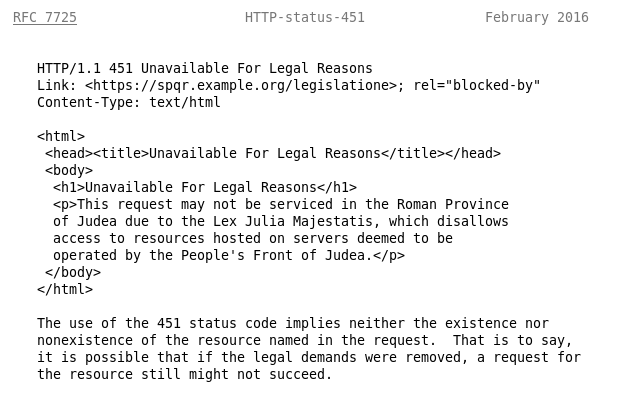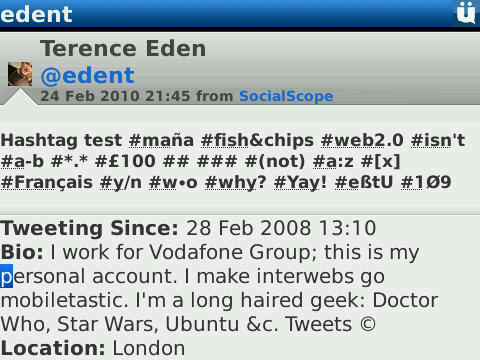
I watched this video from my colleagues in NHS England - it's the first time I've seen a Sign Language overlay on a Twitter video. NHS@NHSukNeed help fast, but not sure what to do? Go straight to 111.nhs.uk . To find out more about NHS 111 including how to use the NHS 111 BSL interpreter service visit nhs.uk/111 #NHS111 pic.x.com/tk18uvm2vy❤️ 16💬 1🔁 016:00 - Sat 18 May 2019 Is it possible to ha…
Continue reading →

I don't like AMP. I think that Google's Accelerated Mobile Pages are a bad idea, poorly executed, and almost-certainly anti-competitive. So, I decided to join the AC (Advisory Committee) for AMP. I don't want them surrounded with sycophants and yes-men. A few weeks ago, a bunch of the AC met in London for our first physical meeting after several exploratory video calls. These are my…
Continue reading →

I'll be wording this post carefully as What 3 Words (W3W) have a tenacious PR team and, probably, have a lot more lawyers than I do. W3W is a closed product. It is a for-profit company masquerading as an open standard. And that annoys me. A brief primer. The world is a sphere. We can reference any point on the surface of Earth using two co-ordinates, Longitude and Latitude. Long/Lat are…
Continue reading →

A mysterious woman, with a non-London accent and blonde hair, reached out her hand. She asked me a simple, yet terrifying, question - "Do you want to come on an adventure?" Sadly, Hadley Beeman does not have a TARDIS (Well, as far as any of us can tell...). What she does have is an interesting new job for me. Take a deep breath, because it's a heck of a long title: Senior Technology Advisor…
Continue reading →

How much do you know about the humble <title> tag? It has been there since the earliest HTML specification. The 1995 spec says: There may only be one title in any document. It should identify the content of the document in a fairly wide context. It may not contain anchors, paragraph marks, or highlighting. Remarkably little has changed in the intervening decades. The modern HTML5 spec…
Continue reading →

Hello, it's me - the idiot who helped inspire the HTTP 451 status code. I graciously allowed Tim Bray to do the hard work of getting it through the IETF process, and now it is an official RFC. Recently, I've seen lots of people getting het up about its "misuse" - so I want to clarify a few things. The GDPR (General Data Protection Regulation) gives people in the EU strong data protection…
Continue reading →

In the last couple of months, I've been seeing the ú symbol on British receipts. Why? 1963 - ASCII In the beginning* was ASCII. A standard way for computers to exchange text. ASCII was originally designed with 7 bits - that means 128 possible symbols. That ought to be enough for everyone, right? Wrong! ASCII is the American Code for Information Interchange. It contains a $ symbol, but …
Continue reading →

A few days ago, I ranted about how chat apps have poor support for URI schemes. By "Chat Apps", I'm talking about the new wave of messengers - WhatsApp, WeChat, Telegram, Wire, and the like. What do I mean by "URI Scheme"? You're probably familiar with: https://example.com The "scheme" is https - it tells the computer "Open the web browser and load the specified resource." You may also be …
Continue reading →

For a bit of light reading, I've been going through some of the documents published by Sir John Chilcot's Iraq Inquiry. There are thousands of Telegrams, eGrams, Teleletters, and other miscellaneous communications. For those unfamiliar with the jargon, the inquiry have helpfully published a guide to reading the evidence. In it is this delightful titbit about the timestamps used on telegrams. …
Continue reading →

Friends, allow me to wallow in a little boasting! Four years ago, I made a modest proposal for a new HTTP Code to indicate censorship. A few days ago, RFC 7725: An HTTP Status Code to Report Legal Obstacles became an approved standard by the Internet Engineering Task Force. This allows a website, proxy, or ISP to explain to the user that the resource the user requested is unavailable for…
Continue reading →

This is one of the longest and geekiest posts I've done. It's a work in progress. All comments and abuse welcome. #hashtag – As long has there has been a way to search Tweets* people have been adding information to make the easy to find. The #hashtag syntax has become the standard for attaching a succinct tag to Tweets. The Twitter Engineering Blog That's all well and good, but as I discovered …
Continue reading →










